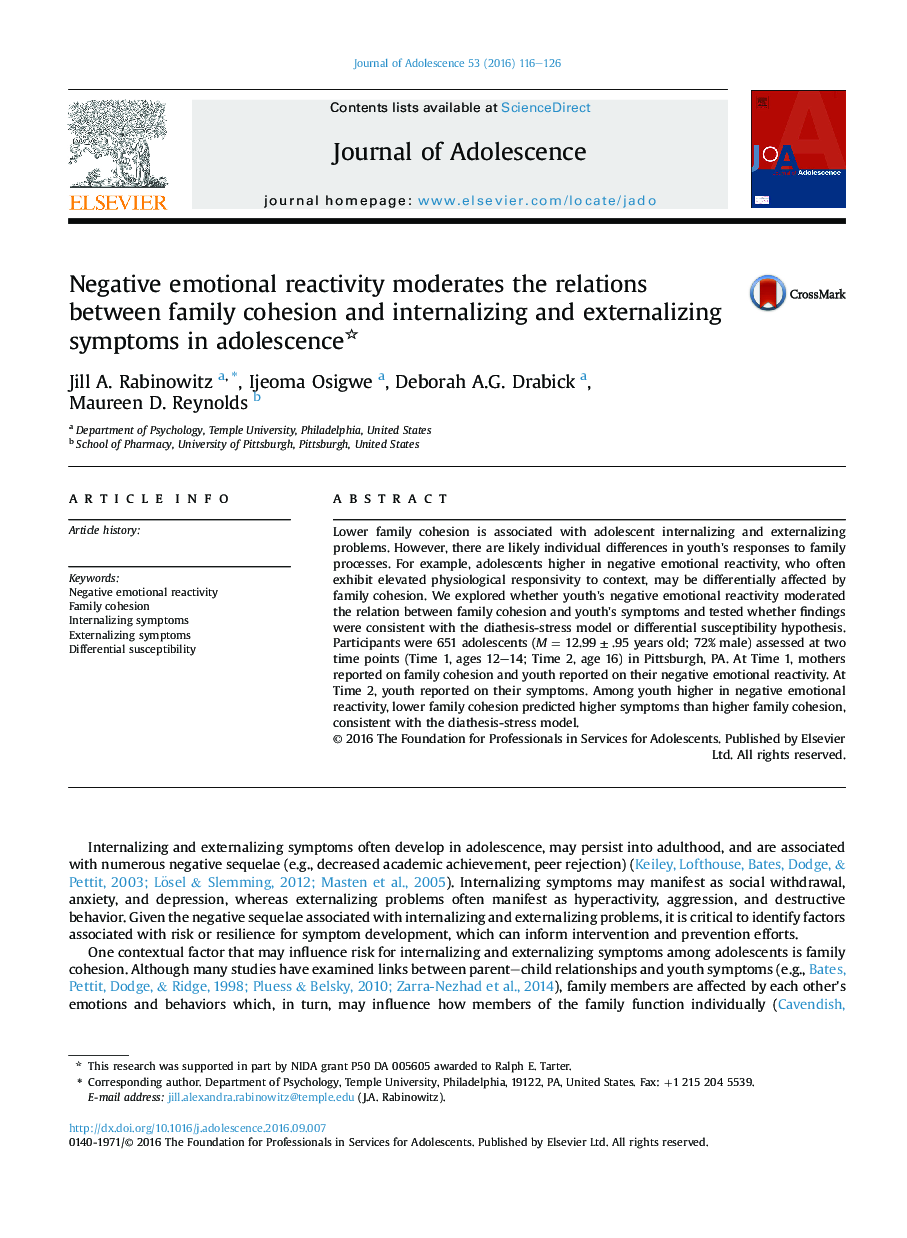| Article ID | Journal | Published Year | Pages | File Type |
|---|---|---|---|---|
| 5033887 | Journal of Adolescence | 2016 | 11 Pages |
Abstract
Lower family cohesion is associated with adolescent internalizing and externalizing problems. However, there are likely individual differences in youth's responses to family processes. For example, adolescents higher in negative emotional reactivity, who often exhibit elevated physiological responsivity to context, may be differentially affected by family cohesion. We explored whether youth's negative emotional reactivity moderated the relation between family cohesion and youth's symptoms and tested whether findings were consistent with the diathesis-stress model or differential susceptibility hypothesis. Participants were 651 adolescents (M = 12.99 ± .95 years old; 72% male) assessed at two time points (Time 1, ages 12-14; Time 2, age 16) in Pittsburgh, PA. At Time 1, mothers reported on family cohesion and youth reported on their negative emotional reactivity. At Time 2, youth reported on their symptoms. Among youth higher in negative emotional reactivity, lower family cohesion predicted higher symptoms than higher family cohesion, consistent with the diathesis-stress model.
Related Topics
Health Sciences
Medicine and Dentistry
Public Health and Health Policy
Authors
Jill A. Rabinowitz, Ijeoma Osigwe, Deborah A.G. Drabick, Maureen D. Reynolds,
